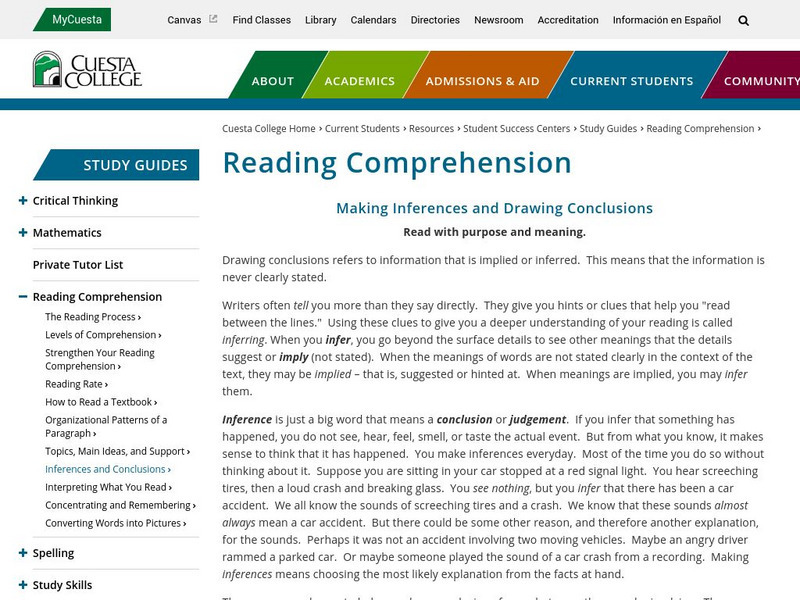Curated OER
Characteristics of Living Things
Young scholars discuss the criteria for living things with their groups. They come to a consensus on at least five or more characteristics of a living thing. They determine if the lab samples are living, non-living, or other.
Curated OER
Which Animals Should Be Saved?
Fifth graders investigate the concepts related to the endangerment of different animal species. They conduct research using a variety of resources. The skills of prediction are used to show the possible outcome of the extinction of a...
Curated OER
Drill with Modals
In this grammar activity, students rewrite each sentence with a different helping/linking verb modal. Students follow the example given on the activity.
Curated OER
Drill with Modals
In this grammar learning exercise, students practice rewriting sentences from one tense to another as shown in the example given. Students rewrite four other sentences utilizing the verb must.
Curated OER
Bums in the Attic
Students engage in a study about the life of young girl in the book "Bums In The Attic". They read the narrative story while considering the first person point of view. Students write a journal that analyzes the author's style of writing.
Curated OER
Lab Report Template
Young scholars write a paragraph (complete sentences) which explains what they did in the lab.
Curated OER
Underground Railroad
Fourth graders use internet cites to explore the Underground Railroad. They also learn the importance of the Emancipation Proclamation. Focus questions are included.
Curated OER
Design a Better Classroom Workplace
Students design a new classroom workplace. In this architecture lesson, students use area formulas to identify the problem with the existing desks in their classroom. Students design their own solution volume formulas to solve the...
Curated OER
Two Column Logic Proofs
Students complete two column proofs. For this geometry lesson,students derive the reasons their answers are correct using logic. They write the proof step by step using two columns.
Curated OER
Weather Forecasting: From Then to Now
Eighth graders review the history of weather forecasting. In this earth science lesson plan, 8th graders identify the different tools used in forecasting weather. They explain why it's important to know the weather.
Curated OER
Using Newsprint as a UV Detector
Students investigate the effects of UV radiation. In this earth science lesson plan, students explain how the time of day relate to UV abundance on Earth. They determine if weather affects the amount of UV that Earth receives.
Curated OER
A Treasure at our Doorstep
Students write a descriptive essay about a historical landmark in their area, such as the Curtis Center in Philadelphia, PA. In this historical landmarks instructional activity, students use their senses to detail information about the...
Curated OER
Mississippi’s Electricity: From Generation to Consumption
Eighth graders discover how electricity is produced. In this physics lesson plan, 8th graders infer about the future of Mississippi's energy industry. They participate in a Smart Board interactive activity at the end of the lesson plan.
Curated OER
Mineral Lab
Eighth graders examine the physical properties of different minerals. In this earth science lesson, 8th graders explain the uses of minerals in their daily lives. They complete the mineral identification table during the lesson.
Curated OER
How Can You Study Things You Can’t See Like: Atoms?
Students simulate how scientists studied things they can't see like atoms. In this chemistry instructional activity, students predict what is inside the numbered obsertainers. They design a way to investigate what's inside without...
Curated OER
Using PING to determine factors of Internet delay
Students use the concepts of PING to examine Internet delay. They discuss why PING is used in the Computer Science industry. They practice interpreting data as well.
Curated OER
Cycles Review
Eighth graders discuss the four major cycles of matter. In this general science lesson plan, 8th graders decide which of the four is the most important. They share their opinion in class.
Curated OER
Introduction to Biomes
Eighth graders identify the different kinds of biomes. In this life science lesson, 8th graders explain their importance in an ecosystem. They take a BrainPop quiz at the end of the lesson..
Curated OER
Investigation of Timbre
Students design an experiment to analyze the timbre of different instruments. In this physics lesson, students analyze the missing quality in sound. They discuss their results in class.
Curated OER
Ecology: Adaptations
Eighth graders identify different types of adaptation in organisms. In this biology lesson, 8th graders explain how adaptation help organisms survive. They complete a worksheet at the end of the lesson.
Other
Cuesta College: Reading Comprehension Guide: Inferences and Conclusions
Explanations and examples of inferences and conclusions in reading and in understanding context clues to define unknown vocabulary.
Texas Education Agency
Texas Gateway: Annotate and Analyze a Paired Passage: Practice 1
In this lesson, students will read and annotate a pair of texts to make inferences, draw conclusions, and synthesize ideas and details using textual evidence.
Texas Education Agency
Texas Gateway: Annotate and Analyze a Paired Passage: Practice 2
[Accessible by TX Educators. Free Registration/Login Required] In this lesson, students will read and annotate a pair of texts to make inferences, draw conclusions, and synthesize ideas and details using textual evidence.
Texas Education Agency
Texas Gateway: Annotate and Analyze a Paired Passage: Practice 1
In this lesson, students will read and annotate a pair of texts to make inferences, draw conclusions, and synthesize ideas and details using textual evidence. The two texts are side-by-side to better understand them.























